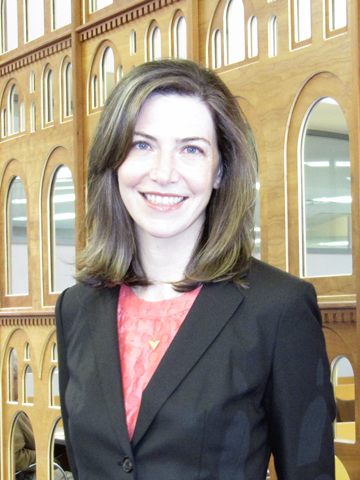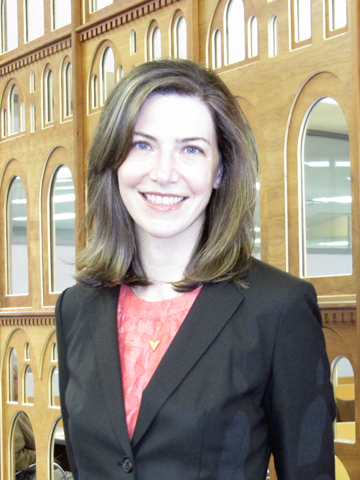
Finding the sweet spot for libraries in the digital age
Photo: Kids at the San Jose Public Library. Source: San Jose Public Library on Flickr.com.
Knight News Challenge: Libraries offers applicants a chance to share in $2.5 million by focusing on the question “How might we leverage libraries as a platform to build more knowledgeable communities?” Below, Jill Bourne, director of libraries for the city of San Jose, writes about the role of libraries in the digital age.
There’s nothing so rewarding in this world as making stuff, especially stuff that makes you more free.
– “Little Brother,” Cory Doctorow
The ability to engage freely and equitably with knowledge and with each other is critical for a democracy. It’s a belief long embodied in the work of our public libraries, which have provided everyone with access to information sources and a safe space to engage with and around those sources. Access begins with free speech and the right to make that speech available to others, but it doesn’t end there. When access is paired with the tools and skills for understanding and using that information, you build agency – the capacity of individuals to act independently and to make their own choices. This pairing of access + agency = a sweet spot for libraries. Related Links
“Can research libraries adapt to live up to their potential?” by Bernard Reilly on Knight Blog (9/12/14)
“Knight News Challenge: Libraries opens for entries” – by John Bracken on Knight Blog (9/10/14)
“Knight News Challenge on Libraries offers $2.5 million for innovative ideas” – press release (9/10/14) “Why Libraries [Still] Matter” – Jonathan Zittrain on Medium (9/10/14)

Jill Bourne, San Jose Public Library
Today, the joint functions of access and agency can’t be guaranteed. Information is a form of capital and power, continually inspiring models of business that profit from limiting and providing access for a fee, or governmental interests that seek to control information. Additionally, a widening knowledge divide threatens to further disconnect resource-poor communities from opportunities to succeed, which in turn limits their ability to contribute to and engage around civic and neighborhood issues.
Knight Foundation, through its Knight News Challenge: Libraries, recognizes that libraries have the talent, public trust and infrastructure to affect change not only in the communities we serve, but also on a broader societal scale. My hope is that we use this challenge to consider how libraries can be leveraged to 1) preserve free access to information sources; 2) build the capacity of our communities to engage through learning and making; and 3) act as a platform for democratic civic engagement.
Libraries must continue to play an essential role in safeguarding and facilitating the free, equitable exchange of ideas in all communities. The right to pursue information and knowledge, free from interference and persecution, is more important than ever. Libraries are trusted because they are apolitical and have a mandate to protect individual privacy, which inherently puts them in opposition to law enforcement and business. I would like to see libraries define their space as champions for privacy literacy – ensuring that people understand how information is being used around them.
Libraries are catalysts for learning – that transformative experience that empowers individuals to advance personal goals, participate in decision-making, engage in a dialogue and contribute to society. By championing democratic systems of access, providing tools for access and teaching literacy in the language of access, libraries empower learners to absorb, process and reimagine shared knowledge. Now these tools include both devices that access Internet content and tools that facilitate the development of applied skills in both the digital and physical realms, with a focus on making as the act of learning. Digital and physical maker activities in libraries create more than another programmatic option; they build new literacies, individual agency and community capacity. How can making be used to connect people with new pathways for both personal growth and influencing neighborhood change?
Libraries are ideal partners and platforms for enabling democratic access to and engagement around information. Libraries remove barriers to participation, and few other institutions are utilized and valued by such a broad spectrum of all demographic groups. What role can libraries play in open data initiatives, helping municipalities consider how to create equitable access to the tools, data and skills to participate in civic innovation and industry? Do city decision-makers and thought leaders see libraries as a platform for reaching communities in a truly inclusive way? How could libraries better position themselves with an active role in community dialogue around critical issues?
These questions may feel huge and unwieldy, but I believe they’re essential. And where better to look for answers than in a library?
Recent Content
-
Journalismarticle ·
-
Journalismarticle ·
-
Journalismarticle ·


